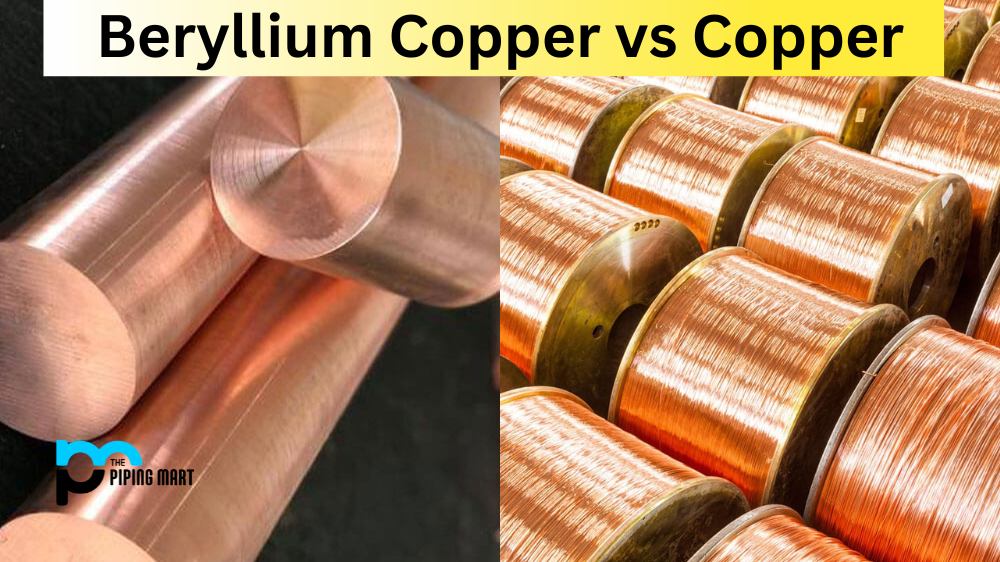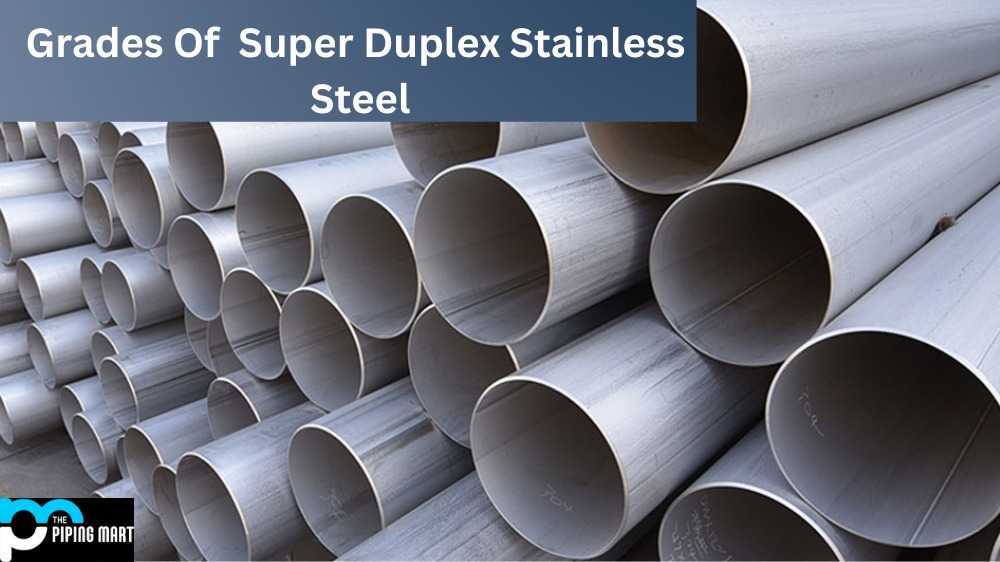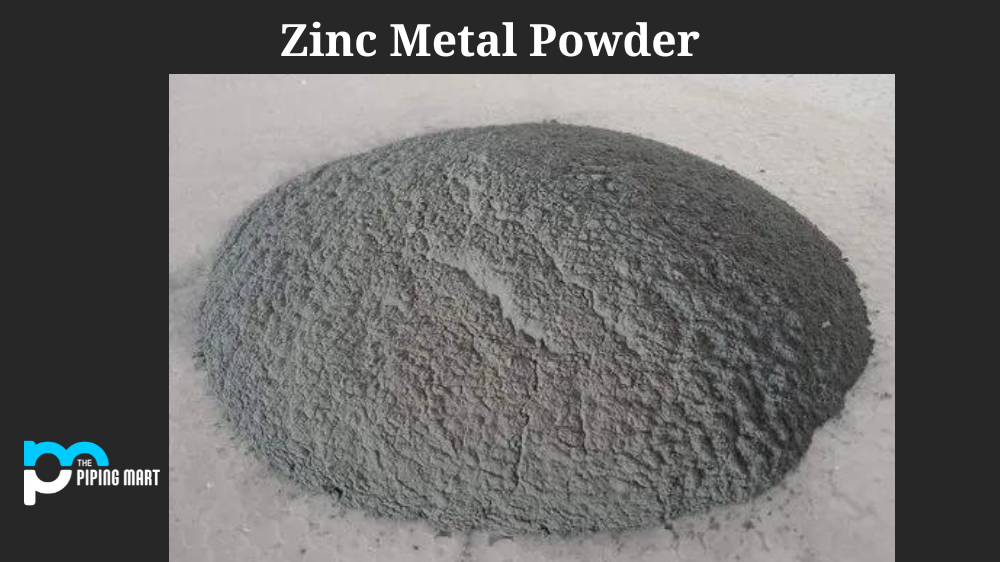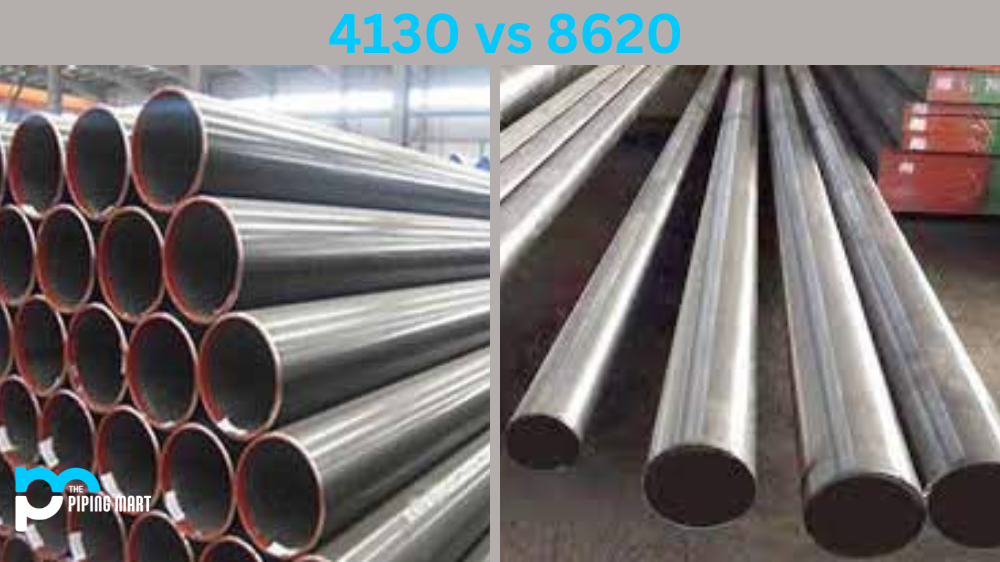When it comes to metalworking, selecting the right metal is vital to ensuring the quality and durability of your product. Beryllium copper and copper are two metals commonly used in various industries. However, they differ in many aspects. Understanding these differences can help you to decide which metal is ideal for your project. This blog will compare beryllium copper and copper and discuss their properties, applications, advantages, and disadvantages.
What is Beryllium Copper?
Beryllium Copper is a high-strength, low-temperature alloy composed of copper and beryllium. It is corrosion-resistant and has excellent electrical, thermal, and mechanical properties, making it ideal for many industrial applications, including aerospace, automotive, and munitions.
What is Copper?
Copper is one of the most essential and versatile elements found in nature. Its properties make it ideal for plumbing, electrical wiring, and home décor; copper can even be used as a renewable energy source due to its high conductivity! Not only that, but it also has antibacterial properties, which makes it a popular choice for kitchen surfaces such as sinks, countertops, and cookware. Plus, copper products are typically recyclable, making them long-lasting and eco-friendly!
Difference Between Beryllium Copper and Copper
Properties
Beryllium copper is an alloy containing 0.5-3% beryllium by weight. It is a strong, durable, and heat-resistant metal. Beryllium copper is also non-magnetic, has excellent electrical and thermal conductivity, and can withstand corrosion. On the other hand, copper is a soft, malleable metal with high thermal and electrical conductivity. It is also malleable and can withstand corrosion but is not as strong and heat-resistant as beryllium copper.
Applications
Due to its high strength and durability, beryllium copper is commonly used in the aerospace, automotive, electronics, and defence industries. It is ideal for applications that require high precision and tight tolerances, such as electrical contacts, springs, and connectors. On the other hand, copper is used in electrical wiring, plumbing, roofing, and other applications where conductivity is essential.
Advantages and Disadvantages
Beryllium copper’s primary advantage is its strength and durability. It can withstand high temperatures and resist corrosion, which is ideal for high-stress environments. However, beryllium copper is costly and contains beryllium, toxic and harmful to health if not handled correctly. Copper is relatively inexpensive, widely available, and easy to work with. Its high conductivity also makes it suitable for many applications. However, copper is soft and less strong and heat-resistant than beryllium copper.
Choosing the Right Metal
Choosing the appropriate metal for your project depends on several factors, such as the application, environment, and budget. If your project requires strength and durability and can withstand high stress and temperatures, then beryllium copper is a suitable option. Copper is a more practical choice if your project requires high conductivity and is not exposed to harsh environments. Also, consider the cost and availability of the metal when making your decision.
Conclusion
In conclusion, beryllium copper and copper are two metals with unique properties and applications. Beryllium copper is strong, durable, heat-resistant, and ideal for high-stress environments. On the other hand, copper is ductile, malleable, and has high conductivity, making it ideal for electrical wiring, plumbing, roofing, and other applications. When choosing between these metals, consider application, environment, budget, and availability factors. With this knowledge, you can select the right metal for your project, ensuring the quality and durability of your product.

Hey, I’m Krutik, a casual blogger expert in the metal industry. I am passionate about providing valuable information to my readers. With a background in engineering and construction, I like playing Cricket & watching Netflix shows in my free time. Thank you for visiting my blog, and I hope you find my information helpful!




